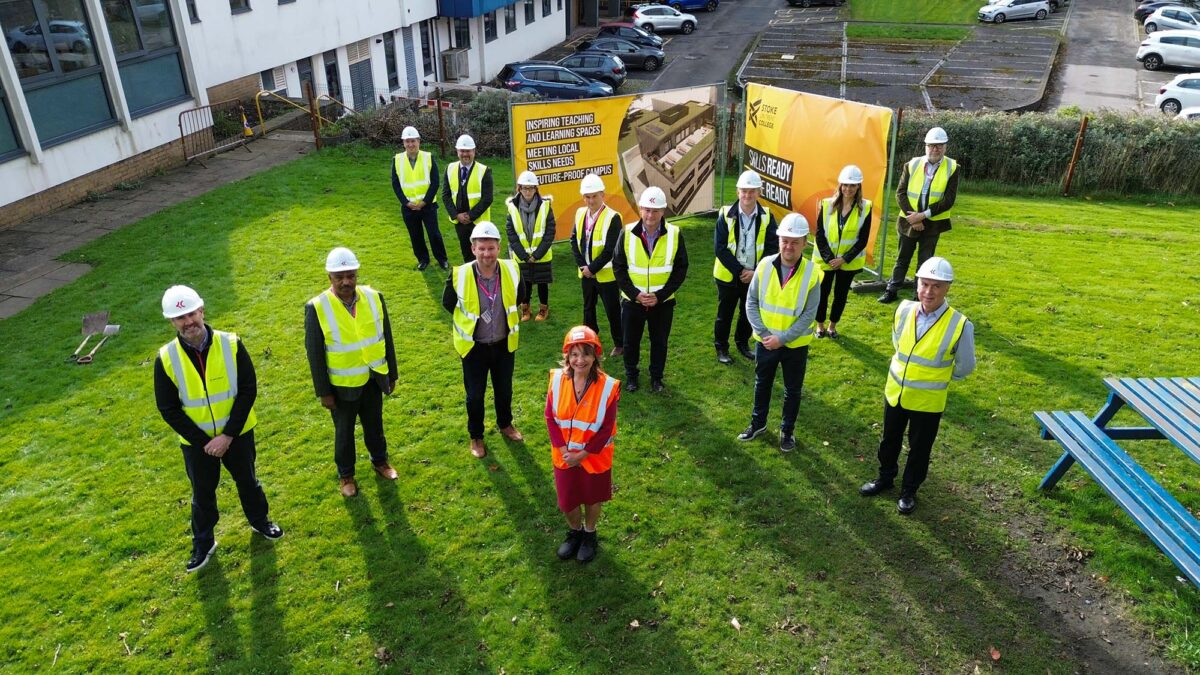Reimagining manufacturing: education’s role in busting misconceptions

Manufacturing has an ageing workforce. In fact, according to the Manufacturing Institute, 78% of manufacturers are concerned about their ageing workforce. While this means many in the industry have a highly skilled workforce, it also poses a knowledge-retention risk when colleagues begin to retire.
Outdated perceptions of the job roles available in manufacturing
So, why aren’t younger generations joining us? Outdated perceptions of the job roles available in manufacturing play a huge part—many picture a labour-intensive job role, when the reality can be very different. Today, manufacturing relies on technologies to operate, meaning many of our colleagues spend their days working with cutting-edge technologies like AI, IoT, and machine learning.
A job in manufacturing doesn’t necessarily mean you’ll be based in a factory.
And a job in manufacturing doesn’t necessarily mean you’ll be based in a factory. Roles vary from mechanics, welders, electricians, plumbers, and machinists to desk roles such as accounting, management, and marketing. Many entry-level job seekers may not know the diversity available in manufacturing and the possibilities of different career paths.
Connecting with the community
Spreading the word about the possibilities within manufacturing starts by connecting with communities. When manufacturing plants thrive, a ripple effect follows throughout the entire community: from providing employment to driving economic growth.
Hosting open days with the local community, showing them what manufacturers do, and educating them on the career paths available, will help build connections between manufacturers, local governments and education facilities. We also visit local schools to promote manufacturing, explaining what it involves, and what a career could look like post-school.
When people are aware of the significance of manufacturing and understand its importance in society, they are more likely to support and participate in the sector’s growth.
Sparking interest through apprenticeships
With the age gap growing in manufacturing, at Trivium, we want to ensure we’re connecting with younger generations, showing them that every career path looks different.
We facilitate engineering apprenticeships – both mechanical and electrical – which give entry-level candidates the opportunity to ‘test out’ the industry and earn while they learn the craft, without having to invest in higher education beforehand. We’re proud to say that our apprentices have been awarded highly in industry awards, such as the IWMA’s Craft Skills Award in the Metals Industry Apprentice of the Year competition. In addition, our apprentices regularly go on to achieve higher education engineering qualifications and progress to senior positions.
In fact, many of our senior team started on the factory floor or in junior functional positions and have progressed into their roles managing multi-million manufacturing facilities. We need to show that manufacturing provides a flexible career path, and through apprenticeships, we can build up the skills of the younger generations, ensuring we’re investing in their – and our – future.
The part EDIB has to play
Potential perceptions that manufacturing is a male-dominated field could also be playing into the growing age gap. A Monster survey found that 83% of Gen Z candidates said a company’s commitment to Equity, Diversity, Inclusion, and Belonging (EDIB) is important when choosing an employer. Therefore, employers in the sector need to send clear signals that they are making changes to attract a diverse workforce to secure younger job applicants.
We’re investing in a wide-reaching EDIB strategy, to show all prospective employees, no matter their, that they will be respected, valued, and provided with fair and equal development opportunities.
Why manufacturing?
Creating both physical goods and innovative solutions is at the root of modern manufacturing. Uniquely, factories are a place where creativity meets practicality. You can turn something you imagined into a tangible product, solve logistical problems, and gain a deep sense of accomplishment.
Manufacturing offers a world of possibilities, from design and engineering to supply chain management and quality control, all requiring varying skills and interests. It’s on manufacturers to showcase the opportunities available to the younger generations and bust the perceptions that could hold the next generation of talent, and the industry, back.
Vicki Bidnall, Human Resources Manager, Trivium Packaging











Responses